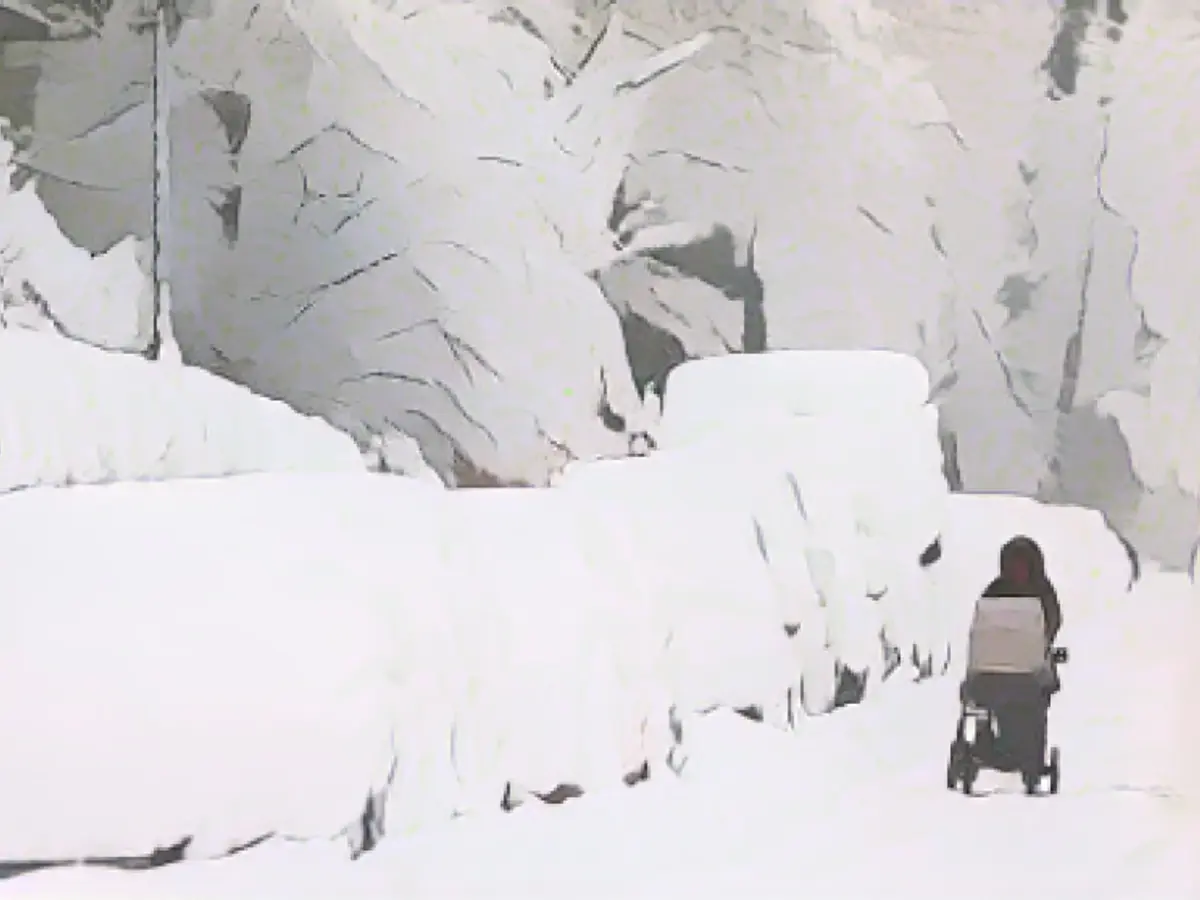Brace Yourself for the Blizzard: An Unusual Winter Awaits
The weather forecast had earlier predicted a milder winter, but Mother Nature had other plans.
A Winter Like Never Before
Out of the blue, winter descended with a fierce force, taking everyone by surprise. This surprise winter sensation brought memories of the past extreme weather conditions, such as the winter of '78-'79, when two snowstorms hit Germany hard in December and February, and left the country buried in snow for days on end.
This time, Christmas was still balmy and wet, but just before the New Year, the temperature plummeted, bringing in an arctic chill and snow drifts reaching up to a meter high. Traffic came to a grinding halt in many places, even the snow-clearers struggled to make progress. The challenge of the snow was made worse as many smaller villages were cut off from the outside world, with power and communication networks failing. The army's tanks struggled through the storm and snow to ensure food supplies and transport pregnant women to hospitals.
A Blast from the Past
February 1979 saw a repetition of this extreme winter. But it wasn't long ago that this was the norm. It was just ten years ago, in December 2010, when Germany experienced one of its coldest winters, with an average temperature of -3.5 degrees, making it one of the coldest since records began. Large portions of Germany were covered in thick snow for almost the entire month.
Winter's Warming Up
Ever since that, winters have become milder and milder, and snowfall has become less frequent. Not long ago, the experts had warned that this trend was set to continue. But the sudden shift has left many puzzled.
The 'Magic' of Snow
While this sudden shift has been an unpleasant surprise for many, it has also sparked nostalgia. Memories of beautiful snow-covered landscapes, trudging through the snow, and the joy of a white Christmas have come flooding back. But is this really a 'golden age' of winter or just a nostalgic recollection?
The Reality Bites
The German Weather Service confirms that there really was more snow in the past. They've calculated that the number of "snow days", i.e., days with at least three centimeter of snow cover, is constantly decreasing. This contrasts significantly with the snowy 1960s and 1980s.
The Climate Change Connection
The changes in winter weather patterns are a direct result of climate change. Over the last few decades, winter months, in particular, have warmed significantly, and this trend is likely to continue. The rising temperatures and the decrease in ice at the poles are driving these changes.
The Verdict
While it's too early to tell for sure, the sudden shift in winter weather could simply be a weather anomaly. But it serves as a stark reminder of the effects of climate change and the need to adapt.
Poll: Will Christmas Be White This Year?
Preply, the learning platform, has carried out a survey to predict whether Christmas will be white this year. According to their forecast, Oberwiesenthal in the Ore Mountains in particular has a 92% chance of a white Christmas this year. Quedlinburg in Saxony still has a 75% chance.
The Future of Winter
While it's too early to predict if this unusual winter will become the new norm, the DWD spokesperson warns that winter is more likely to be too warm in the future. So, let's enjoy these flaky times and save on heating costs.
Also Read:
In conclusion, the extreme winter this year might just be a weather anomaly or a grim forewarning of the climate's future. Whatever it may be, it's a reminder to enjoy these moments and prepare for the future.
Source:
The meteorologists were taken aback by the unexpected change in weather conditions, as they had predicted a milder winter. But recent trends indicate that this abrupt polar blast is not likely to be the norm. Despite the recent heavy snowfall, the frequency of 'snow days' has been consistently decreasing over the years.
Enrichment Data:
The extreme winter this year might be due to a combination of various factors, including climate change, natural weather phenomena, and temporary shifts in atmospheric pressure. To combat the effects of these extreme winters, governments and individuals can implement measures such as reducing greenhouse gas emissions, improving energy efficiency, and enhancing weather resilience in infrastructure and communities.








